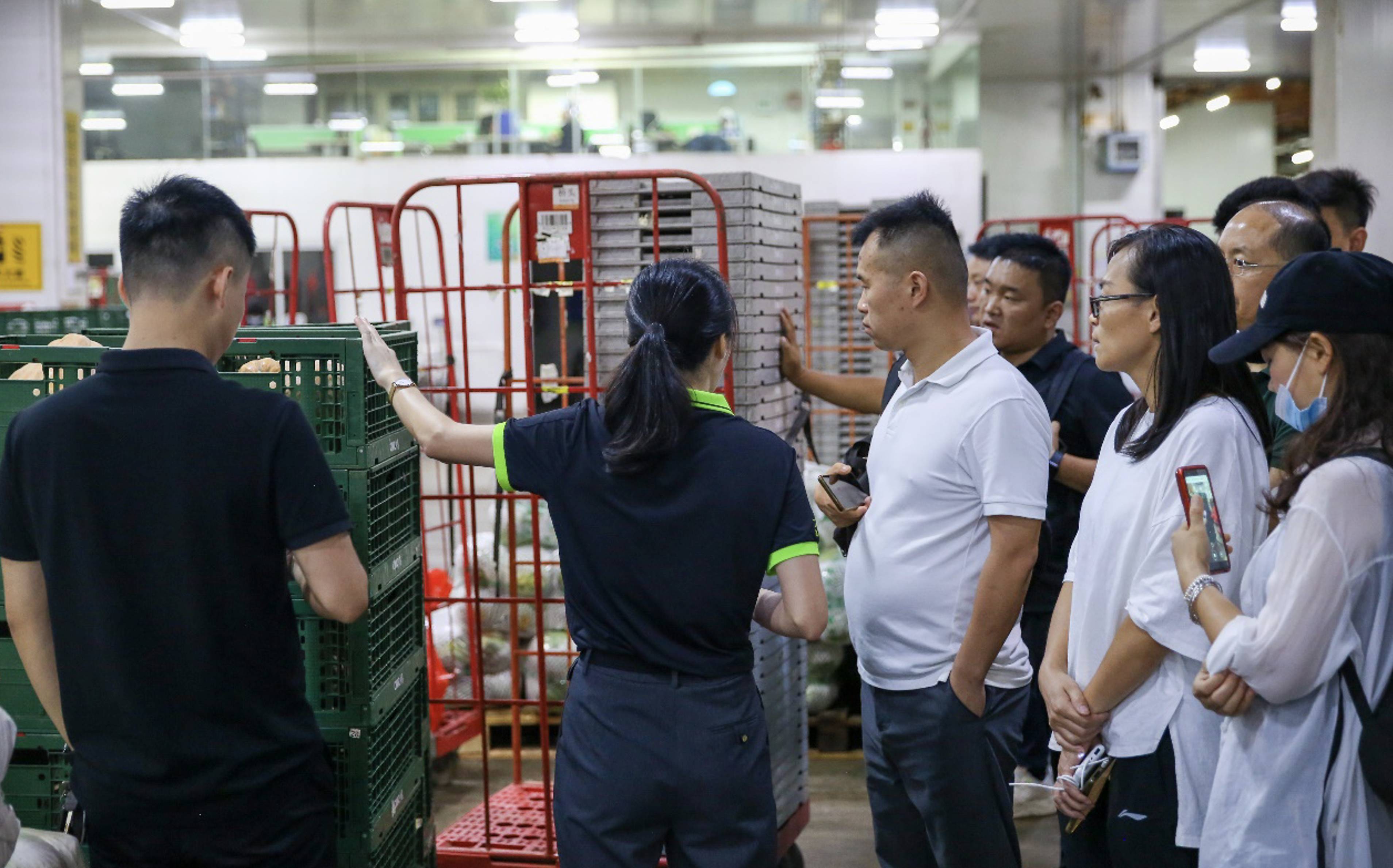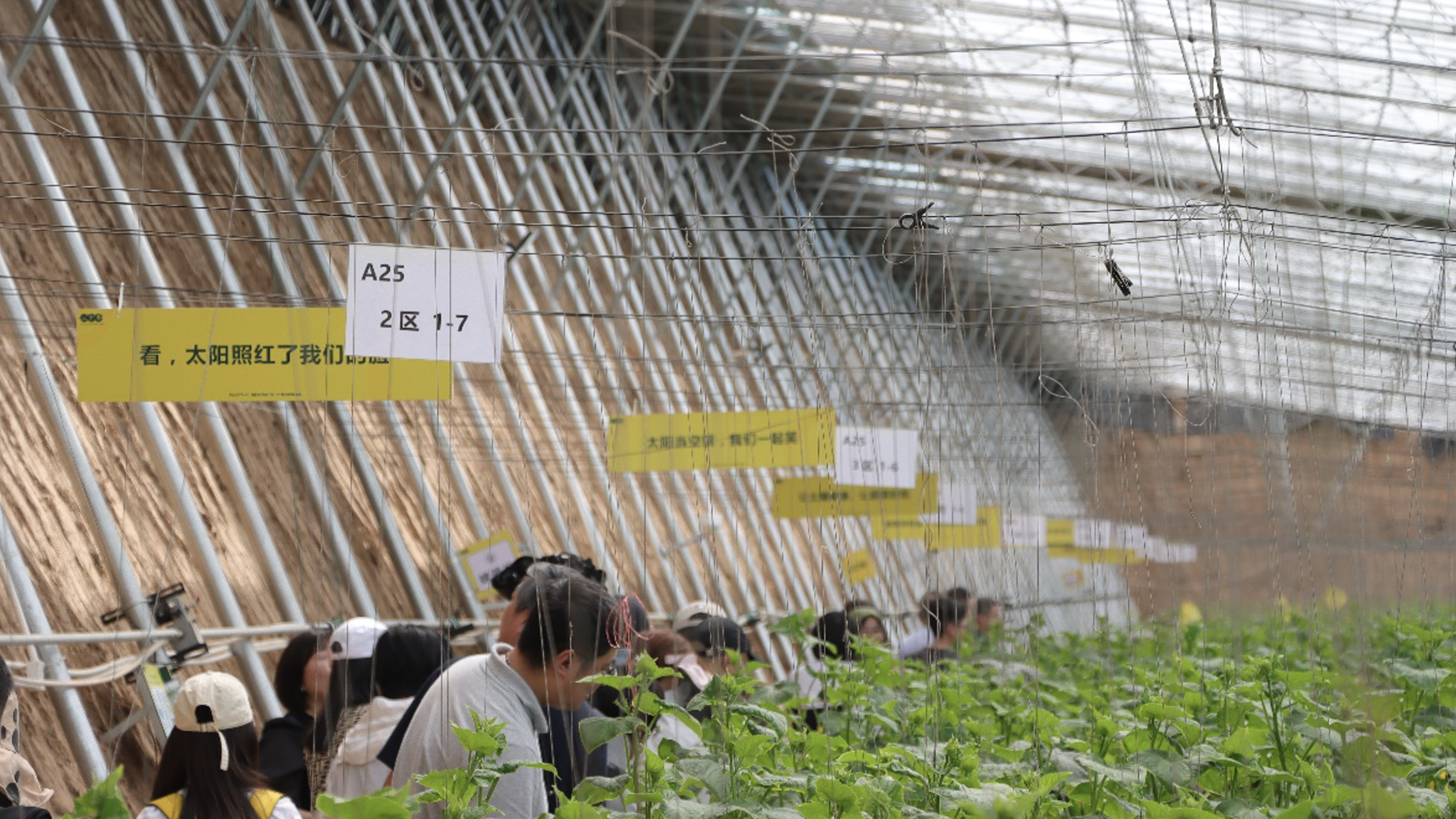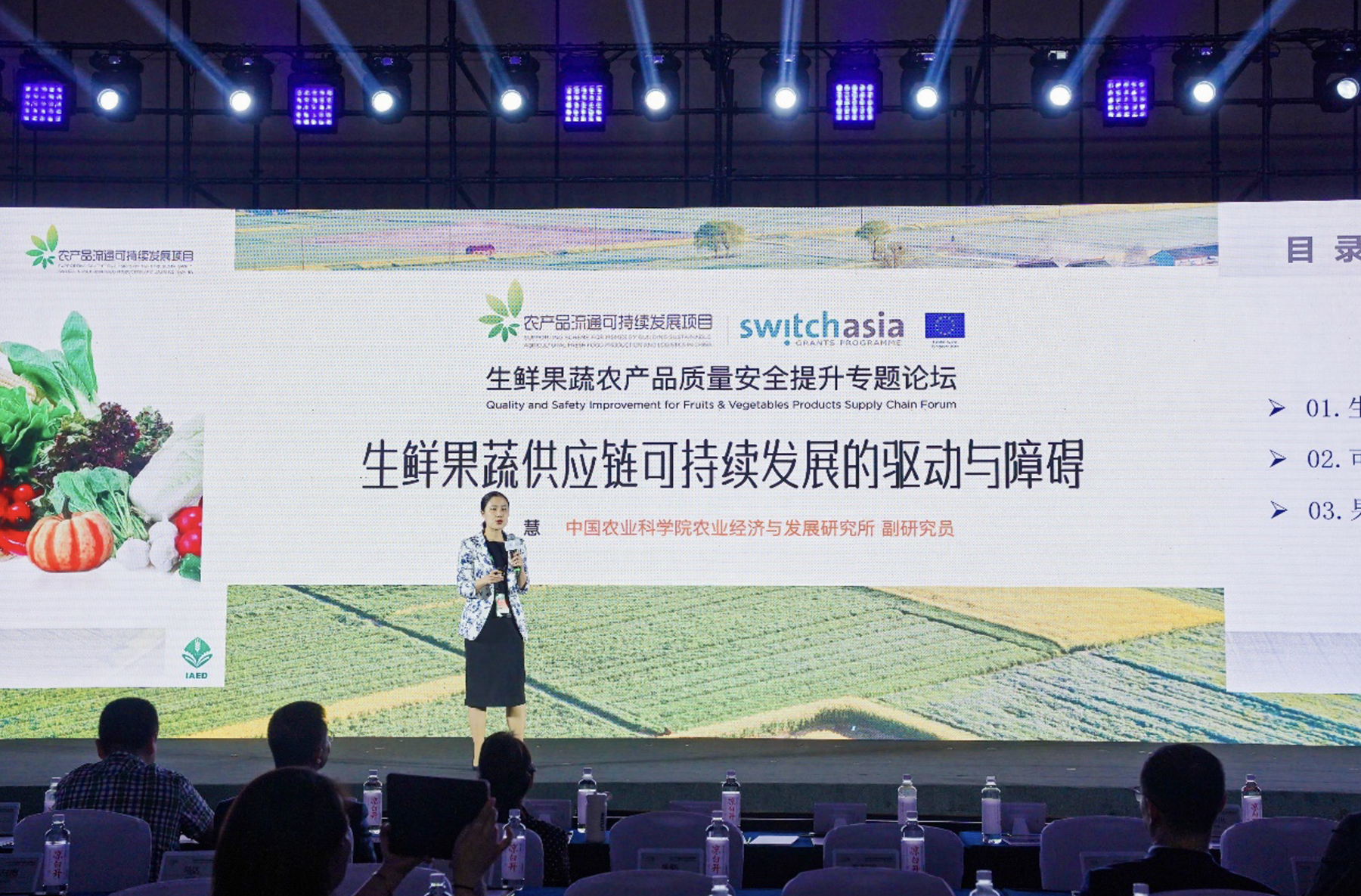
The Sustainable Agriculture and Food Environment (SAFE) Project, funded by the EU SWITCH-Asia programme, focuses on addressing environmental challenges in agricultural production and food distribution systems in China. By reducing packaging waste, optimizing resource use, and strengthening environmental management practices, the project aims to support sustainability across agricultural supply chains.
Launched to combat the significant environmental impact of single-use plastics in agricultural packaging, the SAFE project seeks to promote innovative packaging designs, encourage efficient resource utilization, enhance environmental awareness, and prepare for the implementation of reusable plastic crates. The initiative targets a broad range of stakeholders, from large corporations to small and medium-sized enterprises (SMEs), with the ultimate goal of reducing environmental footprints in the agricultural sector.
In its first year, the project organised training sessions in multiple regions, reaching over 200 businesses. These sessions provided guidance on eco-friendly packaging practices, waste reduction techniques, and resource recycling strategies, leading to reported improvements in environmental management approaches. Farmers and cooperatives were also engaged through specialized planting technology courses aimed at enhancing sustainable agricultural production.

Preparatory work for pilot projects included five site visits to agricultural bases in Shandong, Beijing, Yunnan, and Hubei, covering over ten agricultural enterprises and entities. Additionally, three large-scale training activities in Hubei, Henan, and Inner Mongolia provided farmers and members of the Cooperative Agency of Farmers (CAFs) with practical skills and knowledge.
The project demonstrated its influence by driving improvements in supply chain practices for several businesses. For instance, a major retail chain adopted recyclable packaging materials and optimized transportation processes, achieving a 15% reduction in packaging waste and a 10% reduction in logistics costs.
Extensive research conducted by the SAFE team identified inefficiencies in agricultural supply chains and proposed recommendations that have already led to significant reductions in packaging materials. Streamlined logistics processes are expected to cut packaging material consumption by over 20% annually, reducing the environmental impact of supply chains.
The project also engaged policymakers, offering strategies to improve packaging waste management. These included increasing recycling rates and limiting single-use plastics. Collaboration with the China Chain Store and Franchise Association (CCFA) and the Institute of Agricultural Economics and Development (IAED) facilitated pilot projects involving reusable plastic crates, which evaluated their economic and environmental benefits and potential scalability.

Academic contributions were central to the project’s success.
Dr. Zhou Hui, Associate Professor from IAED, noted that the project fostered interdisciplinary collaboration among economists, sociologists, environmental scientists, and agronomists. By bringing together academia, industry, and government stakeholders, the project enhanced understanding of sustainable agricultural development. Training programmes and practical initiatives further encouraged the adoption of sustainable practices among participants.
Building on this foundation, the project’s second year focused on expanding its reach. Training programmes targeted farmers and cooperatives to improve food safety and sustainable production techniques. Customized training sessions, facilitated through close cooperation among CCFA, IAED, and IVL, reached 535 cooperative representatives and 823 farmers across 15 provinces. Seventy-five cooperatives were recognized for meeting food safety standards.

Pilots involving reusable plastic crates (FVRPC) were scaled up to explore their application in fruit and vegetable products. The demonstration projects in Guangdong and Jinan evaluated economic and environmental performance using site-specific data provided by supply chain partners. Comparisons with disposable packaging highlighted cost and environmental benefits, offering insights into the challenges and conditions necessary for broader adoption.
Policy recommendations are also being developed to support the use of reusable packaging. A European policy tour provided valuable insights into agricultural standards and supply chain management in countries such as the UK, Sweden, and Germany. These findings are being adapted to inform policymaking in China.
Mrs. Gaosi, Head of IVL China, emphasized the importance of Life Cycle Assessment (LCA) and Life Cycle Cost (LCC) modeling in evaluating the project’s economic and environmental performance. These tools have been instrumental in assessing the reduction of food loss and packaging waste while providing actionable insights for policymakers. In 2024, IVL tailored site-specific models for Chinese agricultural supply chain partners, enabling customized evaluations for diverse scenarios. This work not only supports sustainability efforts but also lays a strong foundation for future advancements in sustainable agriculture.
To disseminate its findings, the SAFE project organised national industry forums, media campaigns, and technical workshops. These platforms shared best practices and discussed technical advancements, ensuring that the project’s lessons reached a broad audience and influenced future practices.
Looking ahead, the project aims to strengthen partnerships with retailers and supply chain participants, launch additional pilot projects, and host seminars in key cities. Efforts to improve data transparency and standardization will further support the adoption of sustainable agricultural practices. By integrating research, practical application, and policy engagement, the SAFE project continues to advance its mission of reducing environmental impacts and promoting sustainability in agricultural supply chains across China.


